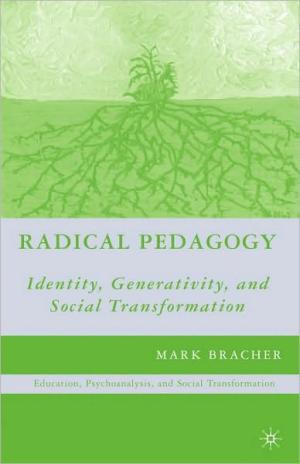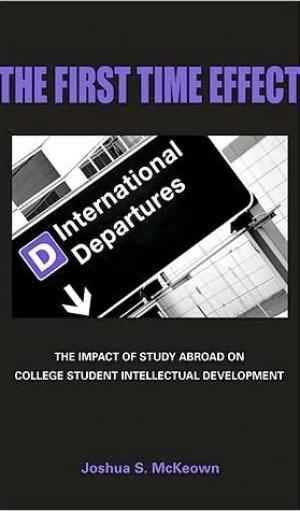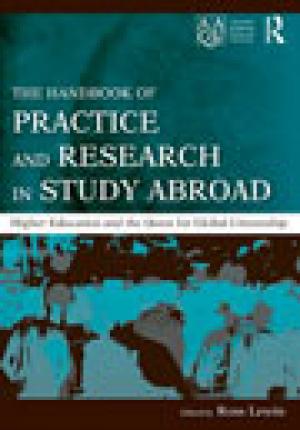Resources

Radical Pedagogy argues that longstanding pedagogical aims and practices are ineffective in promoting learning and social change and proposes a new strategy for achieving these ends. Drawing on recent research in psychoanalysis, social psychology, and cognitive science, Bracher argues that the most effective way to solve social problems such as violence, prejudice, and substance abuse on a mass scale, as well as impediments to learning and personal well being, is through a pedagogy that addresses their common root cause: identity vulnerability.To this end, Bracher formulates psychoanalytically based practices to develop more resilient, secure, and prosocial identities for both teachers and students. (From the Publisher)
One page Teaching Tactic: discussion of art objects in a one week intensive course.
A challenging intercultural teaching experience provided an opportunity for engaging embodied pedagogies that facilitated border crossings of language, age, gender, and experience. Influenced by the work of Augusto Boal, the author describes how improvisation, role-play, music, and drawing led seminary students in Mexico into sacred time and space toward relevant learning. Drawing upon the critical pedagogy of several educators yields implications for teaching theology and religion. The essay also invites readers into dialogue about how such border crossings can benefit their own teaching.
This article outlines a template for sustained experiential learning designed to provide a context for learning the affective and performative as well as intellectual power of religion. This approach was developed for a traditional academic framework, adapting pedagogies developed for experiential learning, aesthetic training, and study abroad, and draws on personal experiences of teaching East Asian religions. The approach integrates intellectual learning with out of class experience to stimulate and enrich the highly personal and often significant questions that may arise upon studying religion and encountering religious practices both in and out of the classroom.

A fresh look at study abroad programs on American college and university campuses. (From the Publisher)

If we are all becoming global citizens, what then are our civic responsibilities? Colleges and universities across the United States have responded to this question by making the development of global citizens part of their core mission. A key strategy for realizing this goal is study abroad. After all, there may be no better way for students to acquire the knowledge, skills, and attitudes required to become effective change-agents in international contexts. The Handbook of Practice and Research in Study Abroad is a comprehensive survey of the field. Each chapter eloquently conveys an enthusiasm for study abroad alongside a critical assessment of the most up-to-date research, theory and practice. This contributed volume brings together expert academics, senior administrators, practitioners of study abroad, and policy makers from across the United States, Canada and other part of the world, who meticulously address the following questions: What do we mean by global citizenship and global competence? What are the philosophical, pedagogical and practical challenges facing institutions as they endeavor to create global citizens? How is study abroad and global citizenship compatible with the role of the academy? What are the institutional challenges to study abroad, including those related to ethics, infrastructure, finances, accessibility, and quality control? Which study abroad programs can be called successful? The Handbook of Practice and Research in Study Abroad is an indispensable reference volume for scholars, higher education faculty, study abroad professionals, policy makers, and the academic libraries that serve these audiences. It is also appropriate for a wide range of courses in Higher Education Master’s and Ph.D. Programs. (From the Publisher)
Journal Issue.
Journal Issue.
This paper examines David Kolb's theory of experiential learning and its usefulness in developing religious studies courses in a 'Discover Chicago' program, wherein students spend an intensive 'immersion' week before the start of the autumn quarter touring, researching, interviewing, discussing, and analyzing a variety of phenomena in the Chicago metropolitan area. Then, during the quarter, they critically revisit issues raised by the immersion week, probing more deeply and letting their initial impressions take on more mature reflective forms by engaging in extensive reading and systematically relating text with experience. Finally, research projects are developed, being outgrowths of the activities of the summer week and the readings and discussions from the first part of the quarter.
Religious autobiography as an introductory course is popular yet problematic. Often, it lacks methodological breadth and functions to ensconce Western notions of subjectivity which elide difference, locatedness, and the reality of multiple or shifting identifications. These problems can be addressed by incorporating into the course a community-based learning exercise in which each student is paired with a local senior citizen, conducts a series of interviews with the elder, and then writes an (auto-)biography based on the interviews. Students are thus given a real-life situation in which to test the applicability of theories and definitions of religion, as well as a relationship to a subject whose locatedness and relatively unprivileged "I" allow for the problematization of autobiography as a genre as well as an appreciation for the contextual nature of religiosity. This exercise transforms the religious autobiography course into a pedagogically fruitful, intellectually defensible, and institutionally savvy introductory course.